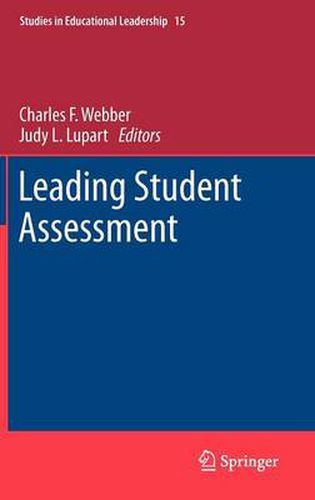Readings Newsletter
Become a Readings Member to make your shopping experience even easier.
Sign in or sign up for free!
You’re not far away from qualifying for FREE standard shipping within Australia
You’ve qualified for FREE standard shipping within Australia
The cart is loading…






This title is printed to order. This book may have been self-published. If so, we cannot guarantee the quality of the content. In the main most books will have gone through the editing process however some may not. We therefore suggest that you be aware of this before ordering this book. If in doubt check either the author or publisher’s details as we are unable to accept any returns unless they are faulty. Please contact us if you have any questions.
This book presents a new and refreshing look at student assessment from the perspective of leading educational theorists, researchers, and practitioners. The authors call for boundary-breaking assessment that reflects clear understandings of the purposes of assessment, a balance of assessment creativity and realism, the ability to detect solutions for assessment challenges, and the capacity to question and imagine assessment alternatives.
The 14 chapters offer school and district educators, policy makers, researchers, and university teacher preparation faculty with a comprehensive, current overview of the state and art of student assessment. Key questions are posed about assessment and critical challenges are presented along with sound evidence-based solutions.
Student assessment is analyzed in terms of its relationship with classroom instructional practices and large-scale testing programs. Formative and summative assessments are compared and contrasted. The role of psychological assessment in informing classroom practices is profiled along with the need for student voice in fair assessment practices.
Readers will be challenged to consider the ecology of student assessment, that is, the impact of assessment in classrooms and schools through to the macro level of globalized societies. The underpinning values and assumptions of student assessment are highlighted. Finally, a rationale is offered for reconceptualizing and redefining assessment.
$9.00 standard shipping within Australia
FREE standard shipping within Australia for orders over $100.00
Express & International shipping calculated at checkout
This title is printed to order. This book may have been self-published. If so, we cannot guarantee the quality of the content. In the main most books will have gone through the editing process however some may not. We therefore suggest that you be aware of this before ordering this book. If in doubt check either the author or publisher’s details as we are unable to accept any returns unless they are faulty. Please contact us if you have any questions.
This book presents a new and refreshing look at student assessment from the perspective of leading educational theorists, researchers, and practitioners. The authors call for boundary-breaking assessment that reflects clear understandings of the purposes of assessment, a balance of assessment creativity and realism, the ability to detect solutions for assessment challenges, and the capacity to question and imagine assessment alternatives.
The 14 chapters offer school and district educators, policy makers, researchers, and university teacher preparation faculty with a comprehensive, current overview of the state and art of student assessment. Key questions are posed about assessment and critical challenges are presented along with sound evidence-based solutions.
Student assessment is analyzed in terms of its relationship with classroom instructional practices and large-scale testing programs. Formative and summative assessments are compared and contrasted. The role of psychological assessment in informing classroom practices is profiled along with the need for student voice in fair assessment practices.
Readers will be challenged to consider the ecology of student assessment, that is, the impact of assessment in classrooms and schools through to the macro level of globalized societies. The underpinning values and assumptions of student assessment are highlighted. Finally, a rationale is offered for reconceptualizing and redefining assessment.